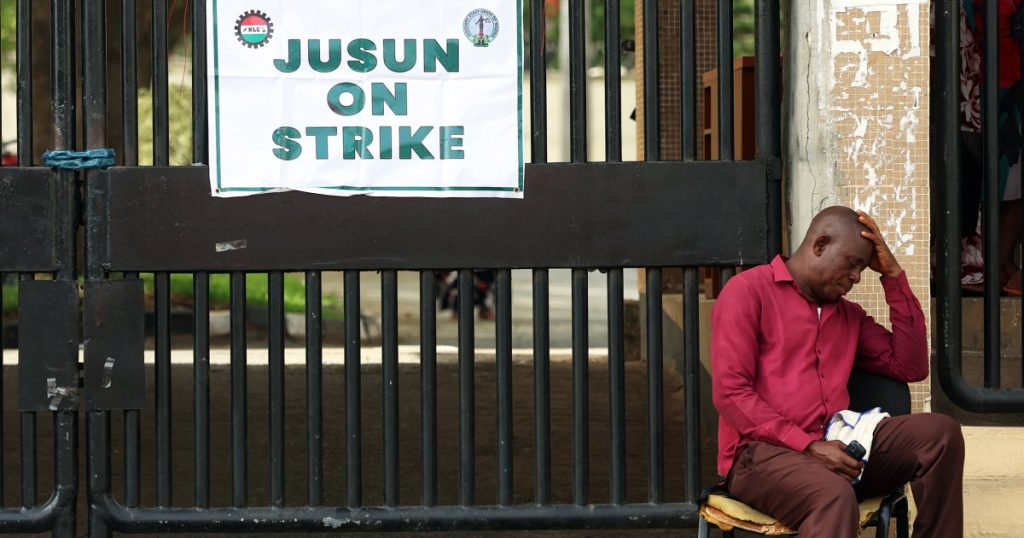A strike in Nigeria, Africa’s most populous country, has brought the nation to a standstill as major labor unions demand a salary increase amidst a severe cost of living crisis exacerbated by President Bola Tinubu’s economic reforms. Tinubu’s policies, including ending fuel subsidies, have led to surging inflation rates, reaching a 28-year high. This strike marks the fourth since Tinubu took office a year ago, with workers shutting down the national electricity grid and disrupting operations at a key transmission station, according to the Transmission Company of Nigeria. Additionally, entrances to airports and other buildings in Abuja and other Nigerian cities were closed, causing widespread disruptions.
Government workers across various sectors either did not report to work or closed entrances to their offices, affecting services in key areas such as airports in Abuja and Lagos. This resulted in hundreds of stranded passengers as local airlines suspended flight operations. The Nigerian Labour Congress and Trade Union Congress, representing hundreds of thousands of government workers, are demanding an increase in the minimum wage from 30,000 naira ($20) to nearly 500,000 naira ($336), while the government has offered 60,000 naira ($40). The unions argue that the current wage is a “starvation wage” and insist on a living wage for workers.
The demand for a significant wage increase poses challenges for the Nigerian economy, with the government warning that meeting this demand would add a substantial 9.5 trillion naira ($6.3 billion) to the wage bill, potentially destabilizing the economy. Many analysts have expressed concerns about the sustainability of a minimum wage of nearly $336, particularly for Nigeria’s states, which often struggle to meet salary obligations. Muda Yusuf, head of the Nigeria Center for Promotion of Private Enterprise, highlighted the challenges of signing a new wage bill and ensuring its sustainability amidst economic constraints.
The labor unions justify their demands by pointing to the lavish lifestyles of Nigeria’s public officials and leaders. President Tinubu’s decision to end fuel subsidies on his first day in office resulted in a significant increase in gas prices, impacting public transport and commodity costs. The government’s devaluation of the naira currency aimed to attract foreign investment but further drove up prices of basic necessities in Nigeria, which relies heavily on imports. The overall impact of these economic reforms and policies has led to a severe cost of living crisis, prompting the labor unions to demand fair wages for workers to cope with the escalating prices and economic challenges facing the country.
The strike in Nigeria has paralyzed the nation, with essential services disrupted and the economy at risk of instability due to the demands for a higher minimum wage. The government’s economic reforms, including the removal of fuel subsidies and currency devaluation, have contributed to soaring inflation rates and increased living costs for the Nigerian population. As the labor unions push for a substantial wage increase to address the cost of living crisis, the government faces the challenge of balancing wage demands with economic sustainability and stability. Addressing the root causes of the crisis, such as income inequality, corruption, and inefficiencies, will be crucial for resolving the ongoing strike and restoring normalcy in Nigeria.


